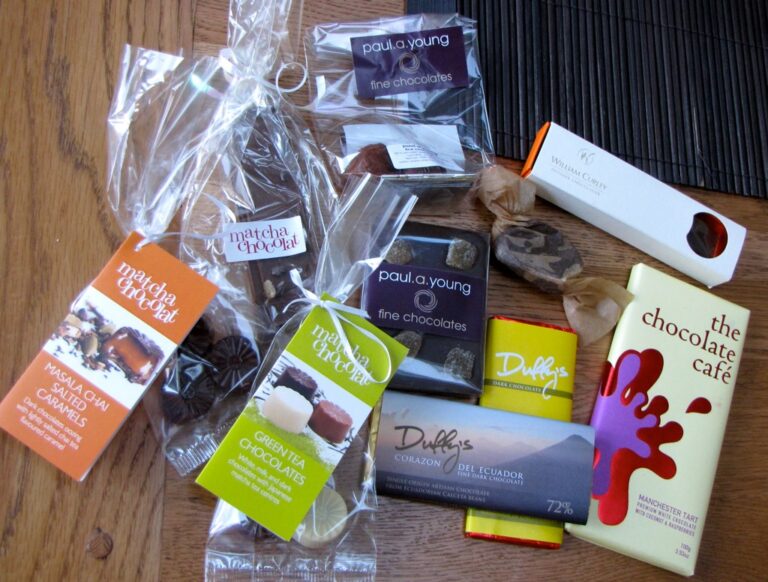At one point or another, we have all indulged in chocolate’s sweet, delectable taste. Whether in a candy bar, a hot drink, or a dessert, origin of chocolate has become an essential part of our lives. But where did this indulgence come from, and how did it become such a critical part of our world? In this article, we’ll explore chocolate’s rich and fascinating history, from its earliest beginnings to modern times.
The Origin of Chocolate
Chocolate’s history can be traced back to the ancient Mesoamerican civilizations of Mexico and Central America. The Mayans and Aztecs were the first to cultivate the cacao plant, from which chocolate is made, over 4,000 years ago. The cacao tree was so highly valued that its beans were used as currency, and the drink they made was reserved for the elite.
The Aztecs believed that cacao was a gift from their god, Quetzalcoatl, and the drink made from it was considered a source of wisdom, strength, and energy. It was also used in religious ceremonies and as a medicine. When the Spanish conquistadors arrived in the New World in the 16th Century, they were introduced to cacao and the chocolate drink made from it. They quickly returned the glass to Europe, where it became popular among the wealthy and elite.

The Rise of Chocolate in Europe
In the 17th and 18th centuries, chocolate became more widely available in Europe, and its popularity grew. Like coffee houses, chocolate houses sprang up all over Europe, where people could gather and enjoy luxurious drinks. In the early 19th Century, chocolate was still mostly consumed as a drink. Still, in 1828, Dutch chemist Coenraad Johannes van Houten developed a way to make cocoa powder by separating the fat from the beans. This made it easier to produce chocolate, and it became more widely available and affordable.
In 1847, British chocolate manufacturer Joseph Fry created the first chocolate bar, revolutionizing chocolate consumption. Over the next Century, chocolate bars, candies, and other chocolate treats became increasingly popular, and new flavors and varieties were introduced. Chocolate had indeed become a part of daily life.
Modern Times: Chocolate in the 21st Century
Today, chocolate is more popular than ever and is enjoyed worldwide. There are countless varieties of chocolate, from milk chocolate to dark chocolate, white chocolate, and more. In addition to being a delicious treat, chocolate has been the subject of scientific study, with researchers exploring its health benefits and potential as a medicine.
As the demand for chocolate has grown, so has the concern for its production’s social and environmental impact. Many chocolate producers are now adopting fair trade and sustainable practices, ensuring farmers are paid fairly and protecting the environment.

Conclusion
Chocolate has come a long way since its humble beginnings in Mesoamerica. It has become a beloved treat enjoyed worldwide and has played an essential role in history, culture, and society. As we continue to enjoy chocolate, it is necessary to remember and appreciate its rich and fascinating history. So, the next time you savor a piece of chocolate, take a moment to enjoy the long and delicious journey that brought it to your taste buds.
FAQ’s
- Where does chocolate come from? Chocolate has its roots in the ancient Mesoamerican civilizations of Mexico and Central America, where the cacao tree was first cultivated over 4,000 years ago.
- How did chocolate become popular in Europe? When the Spanish conquistadors arrived in the New World in the 16th Century, they were introduced to cacao and the chocolate drink made from it. They quickly returned the glass to Europe, where it became popular among the wealthy and elite. Like coffee houses, chocolate houses also helped spread its popularity in Europe.
- Who invented the chocolate bar? British chocolate manufacturer Joseph Fry created the first chocolate bar in 1847, revolutionizing how chocolate was consumed.
- What are the different types of chocolate? There are wide varieties of chocolate, including milk chocolate, dark chocolate, white chocolate, and more. The percentage of cocoa solids in the chocolate is what determines its classification.
- What are some of the health benefits of chocolate? Studies have shown that chocolate may have several health benefits, such as improving heart health, reducing inflammation, and boosting brain function.
- What is fair trade chocolate? Fairtrade chocolate is produced under ethical and sustainable practices that ensure farmers are paid fairly for their work and that the environment is protected. It is an important initiative that promotes social responsibility and environmental sustainability in the chocolate industry.
